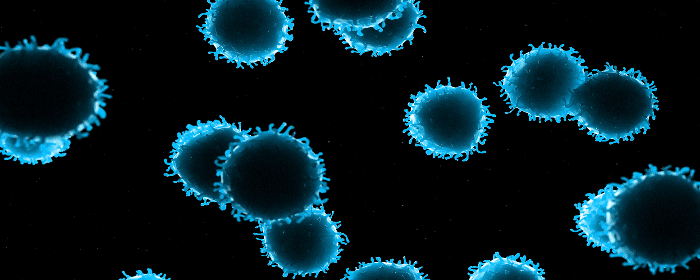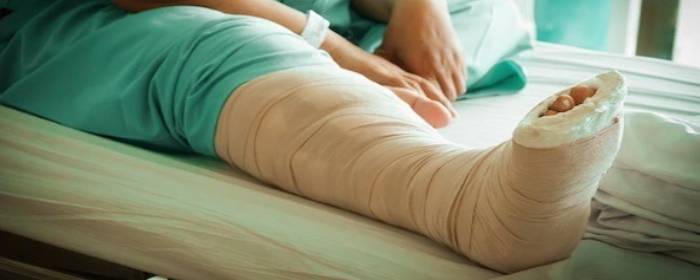
by admin | Feb 1, 2019 | Adipose, Exosomes, Mesenchymal Stem Cells, Stem Cell Research, Stem Cell Therapy, Studies, Umbilical Stem Cell
Most organs of the body recover from injury by generating new, healthy cells. Not every organ of the body has the same ability to form new cells, however. The skin is an example of an organ that has an amazing ability to regenerate. Liver and lung also have the ability to form new cells, but not as dramatically as skin. Kidney and heart have even less ability to repair and regenerate. On the opposite end of the spectrum from the skin is the brain, which has very little capacity to regenerate once it has been damaged or destroyed. All of these organ systems, especially those that are relatively unable to repair themselves, could theoretically benefit from stem cells.
Mesenchymal stem cells, also known as stromal cells, are multipotent stem cells derived from bone marrow, umbilical cord, placenta, or adipose (fat) tissue. These cells can become the cells that make up bone, cartilage, fat, heart, blood vessels, and even brain. Mesenchymal stem cells have shown a remarkable ability to help the body to produce new cells. Researchers are now realizing that the substances stem cells release may be more important than any new cells they may become. In other words, stem cells can directly become new healthy cells to a certain degree, but they can also release substances that dramatically increase the number of new, healthy cells.
Mesenchymal stromal stem cells release small packets called exosomes. These exosomes are filled with various substances that promote cell and tissue growth. Some of the most interesting and potentially useful substances are cytokines and micro RNA. Cytokines are the traffic cops of cellular repair, signaling certain events to take place while stopping others. Having the right cytokines in a particular area is critical for new tissue growth. The micro RNA released by stem cell exosomes is potentially even more exciting than cytokines. These tiny bits of RNA can directly affect how healthy and diseased cells behave. Micro RNA has a powerful ability to control the biological machinery inside of cells.
Exosomes exhibit a wide array of biological effects that promote the repair and growth of damaged and diseased organs. They promote the growth of skin cells and help wounds heal. Exosomes can reduce lung swelling and inflammation and even help the lung tissue heal itself (i.e. reduced pulmonary hypertension, decrease ventricular hypertrophy, and improve lung vascular remodeling). These small packets released by stem cells help prevent liver cells from dying (i.e. prevents apoptosis), promote liver cell regeneration, and slow down liver cirrhosis (i.e. fibrosis). Exosomes can also help protect the kidneys during acute injury and reduce the damage that occurs during a heart attack.
Several clinical trials are underway designed to allow these exciting developments to be used to treat patients. As the researchers state, “Extensive research and clinical trials are currently underway for the use of MSCs as regenerative agents in many diseases including spinal cord injury, multiple sclerosis, Alzheimer’s disease, liver cirrhosis and hepatitis, osteoarthritis, myocardial infarction, kidney disease, inflammatory bowel disease, diabetes mellitus, knee cartilage injuries, organ transplantation, and graft-versus-host disease.” We can reasonably expect that exosomes will be used to treat at least some of these conditions in the very near future.
Reference: Rani al. (2015). Mesenchymal Stem Cell-derived Extracellular Vesicles: Toward Cell-free Therapeutic Applications. Molecular Therapy. 2015 May; 23(5): 812–823.

by admin | Nov 26, 2018 | Adipose, Aesthetics, Stem Cell Therapy
Although all living organisms experience aging, scientists have relatively little understanding of why aging occurs. The leading theories on aging suggest that living creatures sustain damage to their DNA through exposure to ultraviolet light, toxins, or even the day-to-day stresses of using oxygen for our cellular metabolism. Whatever the cause, this DNA damage causes cells to 1) repair themselves, 2) die, or 3) enter a middle state called senescence where they remain alive, but simply stop participating in active living. If cells successfully repair themselves, they don’t perceptibly age. If cells enter senescence or die, the body shows signs of aging.
The bottom line: If we can help cells repair themselves, and replace dying and senescent cells, we can slow or even reverse aging. All of this may be possible through the careful use of stem cells.
As we age, stem cells lose the ability to renew themselves, to become other cells (differentiate) and to replace aged cells. Older stem cells secrete less and less of the substances that help the cells around them stay young and healthy. Not only do our regular cells age, but so do our stem cells. This is perhaps the strongest point for using stem cells to reverse the visible signs of aging.
Adipose-derived stem cells are one of the most promising sources of stem cells for anti-aging and regenerative medicine. They are easy to harvest by liposuction to remove stem cells along with fat cells. In addition, adipose-derived stem cells have the potential to become all cell types in the skin; namely fat cells, skin cells, muscle cells, and fibroblasts, and others. Even if the stem cells do not become other cells, they strongly secrete cytokines and other substances that help renew and replenish the cells around them.
While additional research is required, adipose-derived mesenchymal stem cells are currently being tested in clinical trials to treat a number of age-related conditions. Indeed, clinicians are currently using the stem cells to perform a number of aesthetic procedures such as breast or buttock augmentation, hand rejuvenation, as facial dermal fillers, and to promote and restore hair growth. As we learn more about how to use the power of stem cells in aesthetic procedures, we will be able to better address the visible signs of aging in the face and body.

by admin | Nov 19, 2018 | Adipose, Osteoarthritis, Stem Cell Research, Stem Cell Therapy
Bone generally develops via one of two distinct mechanisms: intramembranous ossification and endochondral ossification. In the former case, mesenchymal progenitor cells directly differentiate into osteoblasts that form bone. In the latter case, the mesenchymal progenitor cells first create a matrix of cartilage that then acts as a template to enable the remodeling or development of bone tissue. This process of endochondral ossification is the predominant way that bone is generating during the healing process after bones are broken and fractures are endured. Using stem cells to facilitate this process can, therefore, be beneficial in non-healing bone fractures.
A new study published in Acta Biomaterialia has proposed that adipose tissue can be used in bone generation as a scaffold on which adipose mesenchymal stem cells can expand and allow for endochondral ossification. The researchers showed how adipose tissue could be used in this way, through what they termed Adiscaf, to successfully generate cartilage tissue and eventually bone tissue formation. The bone tissue that formed through this process contained bone marrow elements, further demonstrating the bone’s integrity and the promise of this procedure.
Compared to other strategies for building scaffolding, this strategy appeared successful because by using adipose tissue, the adipose stem cells were exposed to their native environment and therefore likely maintained functions they otherwise may not have. Not only will these findings help to solidify our understanding of how to nurture stem cells and enable them to differentiate in ways that can be therapeutically applicable, but they also specifically show how adipose tissue may be able to be used to generate a bone organ through endochondral ossification. Future research will likely help to clarify how these findings can be applied to patients to improve bone healing.

by admin | Nov 12, 2018 | Adipose, Aesthetics
Adipose mesenchymal stromal cells, or adipose stem cells, were discovered in 2001 and have since been heavily researched for their potential use in plastic surgery. The abundance of research and the positive clinical findings have resulted in these cells being increasingly used in plastic surgery and have helped plastic surgery move to the forefront of regenerative medicine. A recent review has summarized research into adipose mesenchymal stromal cells and their applications in plastic surgery.
One of the things that make adipose mesenchymal stromal cells so valuable for plastic surgery is that these cells can overcome challenges observed with other stem cells. Much of the reason for the ability of adipose stem cells to provide better outcomes than other stem cell types are their regenerative properties. The stromal vascular fraction that includes all adipose tissue cells except the adipocytes is becoming used more and more for grafting and replacing fat grafting because of its great potential for tissue regeneration. In addition to grafting, adipose stem cells are showing promise in wound healing and recovery from tissue damage and scarring.
Unlike some other stem cells types that are more challenging to harvest, adipose stem cells can be relatively easily retrieved by performing liposuction, which requires only local anesthesia and can be completed without causing scarring. Now that the potential of adipose stem cells is being realized, the authors of the recent review suggest that new protocols should be developed and solidified to help define how exactly these cells can reliably be used in regenerative medicine generally – and in plastic surgery specifically. As more research is conducted and clinical applications are observed through case studies, these protocols will evolve, and our ability to use adipose stem cells to treat patients will improve and expand.

by admin | Aug 27, 2018 | Adipose, Stem Cell Research, Stem Cell Therapy
Regenerative medicine is a field of research concerned with the process of replacing diseased, dying, or dead cells with the intent of restoring structure and function. In its most basic form, regenerative medicine seeks to regrow cells that were lost or damaged due to injury or condition. Examples of regenerative medicine applications include restoring heart cells after a heart attack, repairing brain cells in Alzheimer’s disease or after stroke, or regenerating T-cells in HIV/AIDS. The potential applications of regenerative medicine are virtually limitless.
Adipose-derived stem cells hold great promise in the field of regenerative medicine. The stem cells are multipotent, which means they can become any number of cell types. For example, adipose-derived stem cells can become osteocytes (bone cells), neural cells (nerve cells), vascular endothelial cells (cells that make up blood vessels), cardiomyocytes (heart muscle cells), pancreatic β-cells (cells that produce insulin), and hepatocytes (liver cells).
Adipose- or fat-derived stem cells have one obvious advantage over bone marrow cells: they are much easier to obtain. Bone marrow stem cells require an uncomfortable/painful procedure to extract them from the center of the bone. Fat-derived stem cells, on the other hand, can be taken from fat pockets in any number of places just under the skin. This essentially combines a sort of liposuction with stem cell transplantation.
Adipose-derived stem cells are the subject of nearly 200 clinical trials worldwide. Even now, fat-derived stem cells are proving useful in several clinical conditions. Adipose-derived stem cells were shown to help people after they suffered from a heart attack, by reducing the size of the damaged heart and helping to restore heart function.
Another advantage of adipose-derived stem cells is that they present possess a tri-germ lineage differentiation potential, meaning they can differentiate into all three germ layers. In other words, they have the remarkable potential to become virtually any cell in the body. This means they can be applied to more than one disease state. In neurodegenerative diseases, such as post-stroke, adipose-derived stem cells could be used to create nerve cells (neurons) and the other main type of brain cell, called glia. Both cell types are destroyed during a stroke, and both are important for proper brain function.
As more results are published from dozens of clinical trials, we will get a clearer picture of the therapeutic potential of adipose-derived stem cells. Indeed, the future of regenerative medicine is very bright.






 St. Petersburg, Florida
St. Petersburg, Florida
